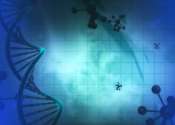Scientists produce new antibiotics by gene editing
Scientists have discovered a new route to produce complex antibiotics exploiting gene editing to re-program pathways to future medicines urgently required to combat antimicrobial resistance, treat neglected diseases and tackle ...








